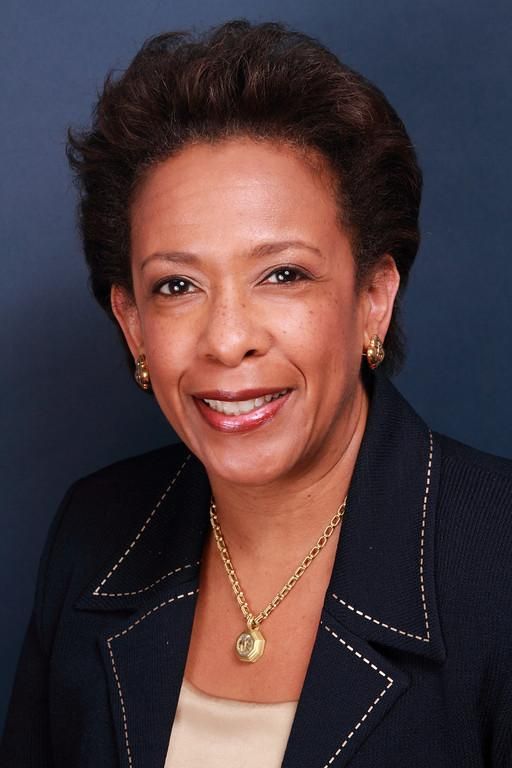Lynch, Loretta Elizabeth (1959-…), was attorney general of the United States from 2015 to 2017. Prior to taking the post, Lynch had served as U.S. attorney for the Eastern District of New York .

Lynch was born in Greensboro, North Carolina, on May 21, 1959. She earned a bachelor’s degree from Harvard College in 1981 and a law degree from Harvard Law School in 1984. After graduating, Lynch worked as a lawyer for a private law firm in New York City.
In 1990, Lynch began working as a trial prosecutor for the U.S. attorney’s office of the Eastern District of New York. She often prosecuted cases related to narcotics or organized crime. She served as chief of the district’s Long Island office from 1994 to 1998. In that role, she frequently worked on public corruption cases. In 1998 and 1999, Lynch served as the U.S. attorney’s chief assistant. In 1999, President Bill Clinton appointed Lynch as U.S. attorney for the Eastern District of New York. She served in the post until 2001. In 2002, she became a partner in a private law firm.
In 2005, Lynch served as special counsel to the prosecutor at the International Criminal Tribunal for Rwanda . In 2010, President Barack Obama named Lynch U.S. attorney for New York’s Eastern District—the same post she had held from 1999 to 2001. Later in 2010, Lynch was appointed to the Attorney General’s Advisory Committee of U.S. Attorneys. She became the chairwoman of the committee in 2013. In November 2014, Obama nominated Lynch to succeed Eric Holder as attorney general. The U.S. Senate confirmed the nomination in April 2015.
As attorney general, Lynch prosecuted terrorists, corrupt public officials, and cybercriminals—that is, people who use computers to commit crimes. She also led reviews of police departments in Baltimore, Maryland, and Chicago, Illinois, among other cities. The reviews, which found patterns of excessive use of force by police, led to agreements meant to improve policing and relations between officers and minority communities.
